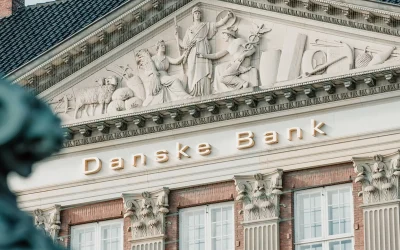The secondary market, where buyers and sellers trade existing interests in private equity funds and their portfolio companies, has grown to almost $90bn, a six-fold increase during the past decade.
Private equity has been growing as an asset class with total assets under management reaching $6.5 trillion in 2020 vs. $2.4 trillion in 2010. While this growth in private equity has been going on for quite a while, driven by the search for higher returns in a low yield world, a more recent phenomenon has been the growth in the private equity secondary market.
When it launched in the 1990s, the private equity secondary market was primarily an option for limited partners looking to exit funds which were not performing well. Not anymore!
These days, the secondary market is seen as a necessary option by limited partners who want to manage their liquidity requirements or reduce exposure to future capital calls. As a result, stakes in well-performing funds are also increasingly available for purchase in the secondary market, just like stakes of well-performing companies are available at the NYSE and NASDAQ exchanges.
A second reason that drives limited partners to access the secondary market is to rebalance their overall portfolios. This can actually be driven by the limited partner’s private equity investments performing very well. For example, if a limited partner allocated 15 percent of their portfolio to private equity and that portfolio performs very well in comparison to other asset classes, it can grow to 20-25 percent of the overall portfolio. In this scenario, the limited partner typically cashes in on some of their gains in the secondary market to bring their overall portfolio allocation back to their desired levels.
Get the week’s top news delivered directly to your inbox – Sign up for our newsletter
Another reason for limited partners to access the secondary market is to make structural changes to their private equity portfolio. Limited partners may want to reduce their exposure to tail-end funds that have limited remaining upside but still require significant administrative resources. Some limited partners are also trimming down their portfolios so that they can consolidate the number of fund managers in their portfolios. Increasingly, the focus on ESG (Environmental, Social, and Corporate Governance) is also boosting the secondary space as some investors look to reduce their exposures to certain funds and increase allocations to ESG-focused funds.
While the secondary market provides numerous benefits to sellers, it is also very attractive to buyers. Purchasing secondary interests, flattens the J-curve, and is an attractive option for investors who are looking to access the high returns of the private equity asset class while maintaining shorter hold periods and getting quicker distributions.
In addition, unlike at the time of initial fundraising, investments made by the private equity fund are already known at the time of a secondary sale. As a result, a buyer can independently arrive at a valuation for the portfolio and underwrite an attractive deal. This can be a very attractive option even for limited partners who are looking to invest in the private equity sector for the first time.
Many limited partners also use the secondary market to purchase interests in well-performing and over-subscribed funds that they might not have been able to access during the initial fundraise. In addition to using this as an opportunity to generate returns, limited partners can also leverage their acquisition of fund stakes to develop deeper relationships with general partners and gain access to future funds.
Source: Entrepreneur
Can’t stop reading? Read more
Top private equity news of the week
Top private equity news of the week Apollo Global Management and BNP Paribas are close to...
Danske Bank scales alternatives mandate to $245m with Danish Industry
Danske Bank scales alternatives mandate to $245m with Danish Industry Danske Bank Asset Management...
Bain Capital takes majority stake in Swedish distributor Tingstad
Bain Capital takes majority stake in Swedish distributor Tingstad Bain Capital has agreed to...




